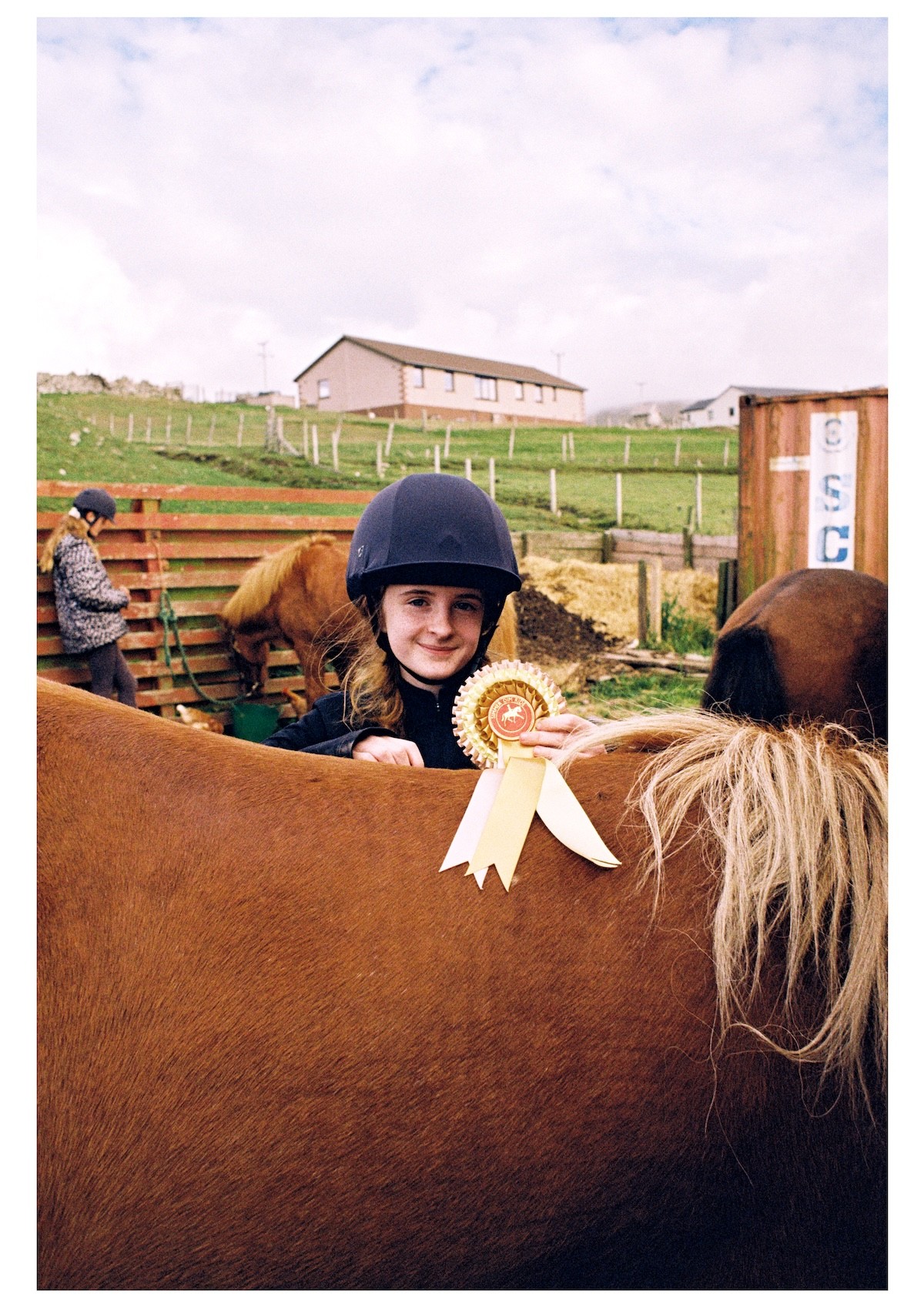Shetland Islands: Girls On the Croft
Travel — 19.11.25
Words & Photography: Ruby Harris
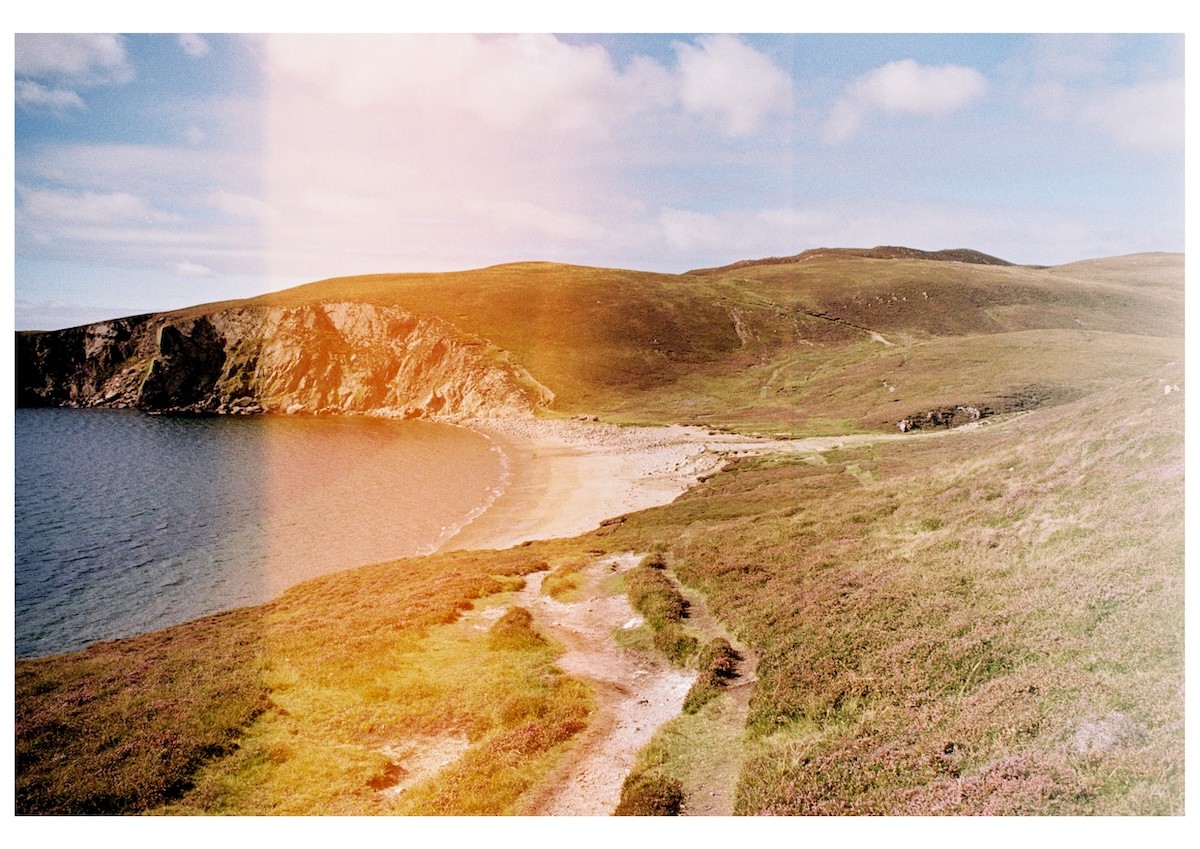
I googled horses on the Shetland Islands, and now I’m on a fourteen-hour boat ride from Aberdeen to Lerwick to go and live and work on a croft for two weeks. Apparently, this is a calm ride; you just have to hold onto the seats as you sway through the cabin. I saw a dolphin and lots of jellyfish off the top of the boat as I tried to watch the horizon to avoid being seasick.
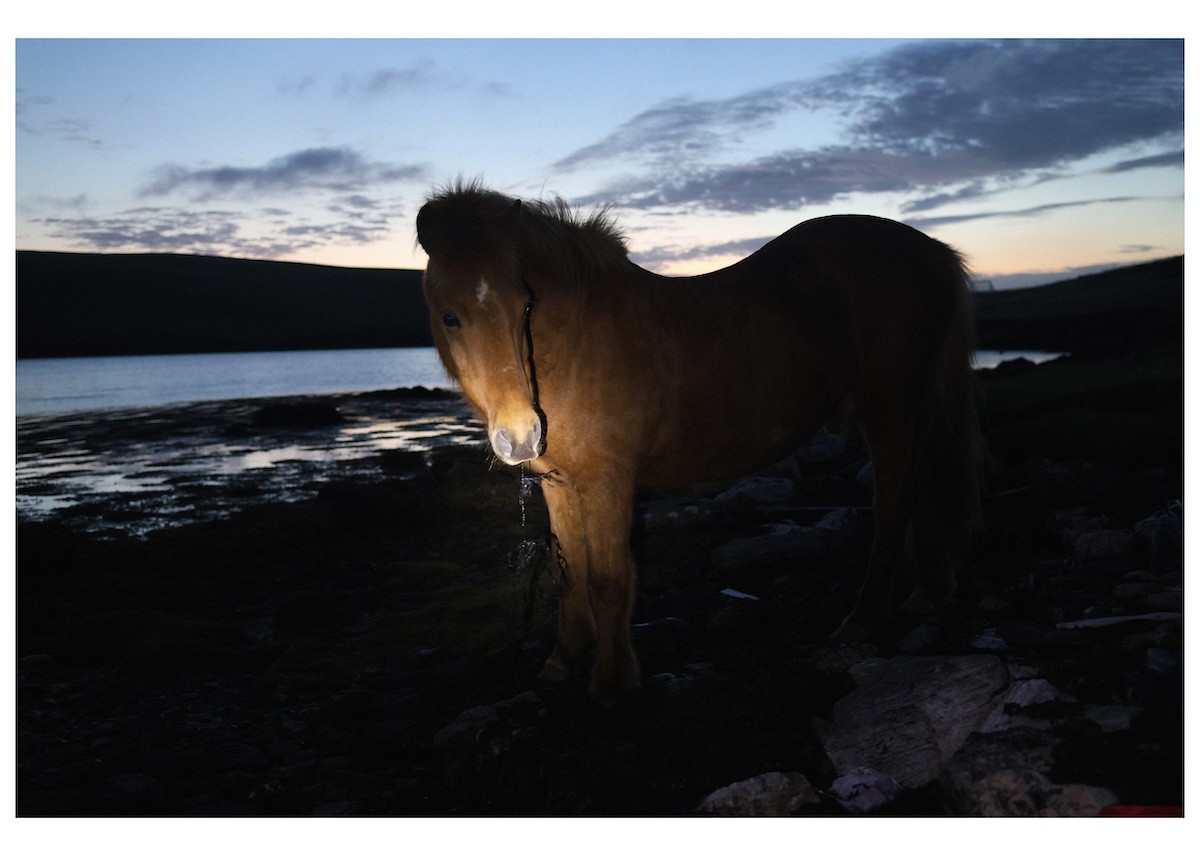
This trip feels special; I’m following my maternal bloodline. Both my grandmas’ great-grandparents came from these islands. Back then, there wasn’t enough food for the growing population, so the British promised a better life across the other side of the world in Aotearoa (New Zealand). At whose cost? Not theirs. Around 4% of Shetland’s population moved to New Zealand in the late 1800s, and I am a result of that.
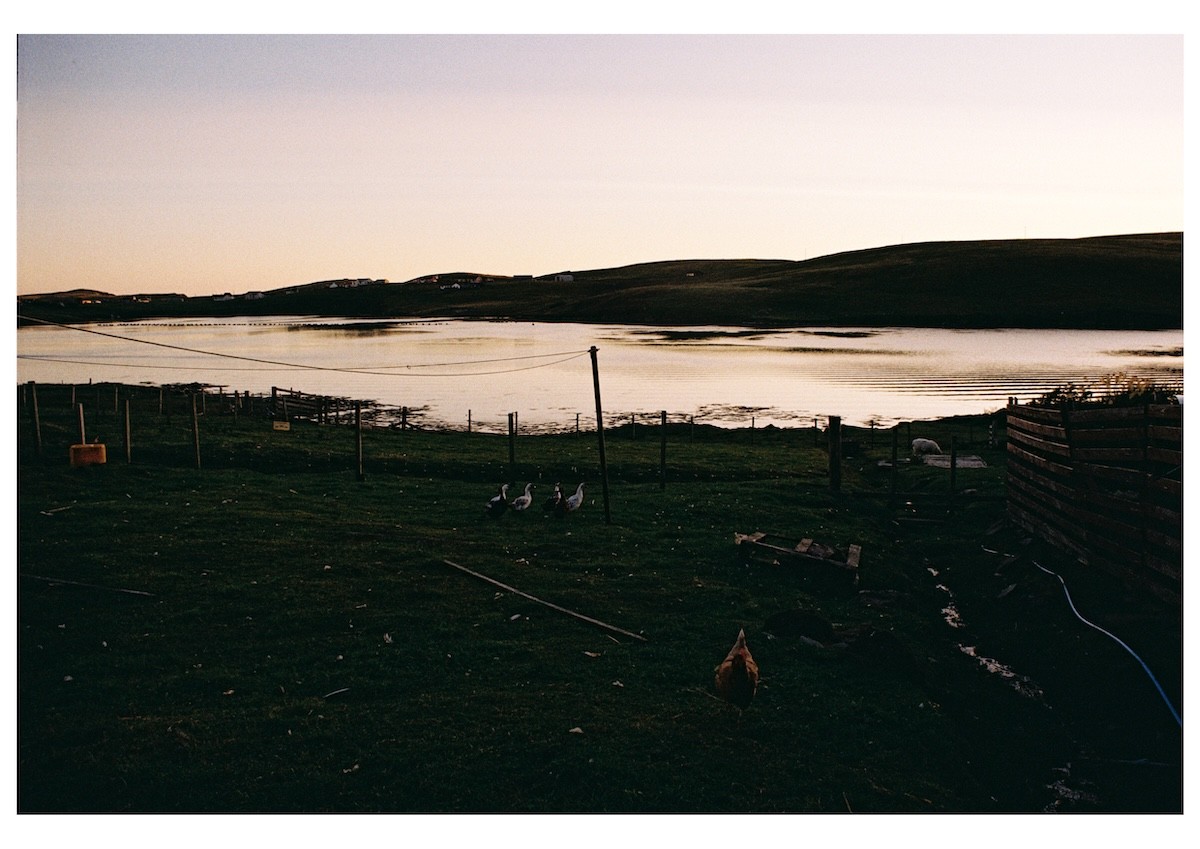
On my drive from the ferry to the croft, I was surprised at the lack of trees. It smelt like home, salty, cold air. The first morning here, I woke up to silence. I blinked and went from running around in London to being a farm girl, back to my twelve-year-old self, listening to “Hey Ho” by the Lumineers. I had a riding assessment, and they said I have soft hands and a sticky seat, which could be due to muscle memory. I just know how to hold on.
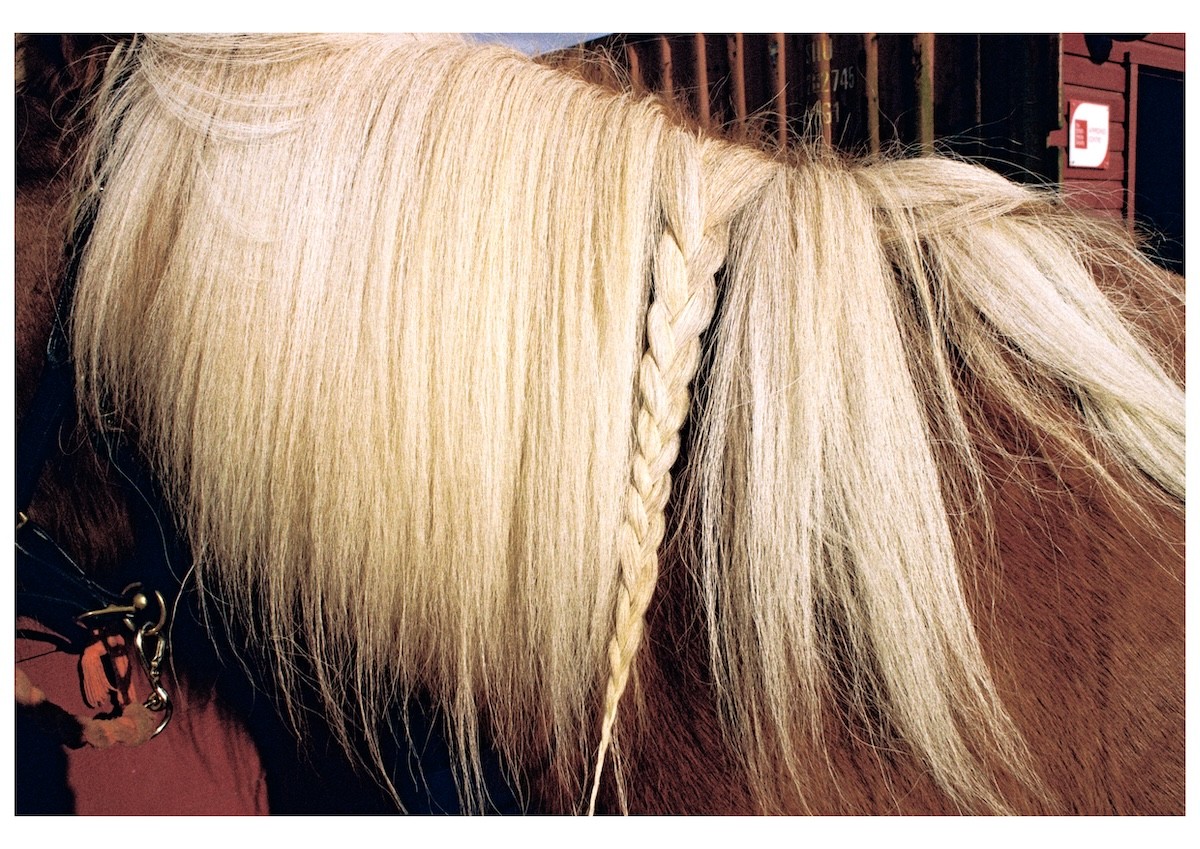
Carrie, the girl who was also there working, and I treated ourselves to a trip to the closest town, Lerwick, for a fluffy coffee. We went into a bookshop and I picked up a book and tried to speak Shetland. A woman laughed and came over to read the words to me. She then talked to us about how the land shapes languages. The wind is so strong here, it blew at 197mph one day in 1992, so the accent has always been really harsh to survive.
One evening, I ran down to the beach, the sky opened, and sun rays fell through the cracks onto the ocean. I came back and swam through the seaweed in the bay. They love cold water swimming here. I just try to breathe. I’m not sure I love it yet.
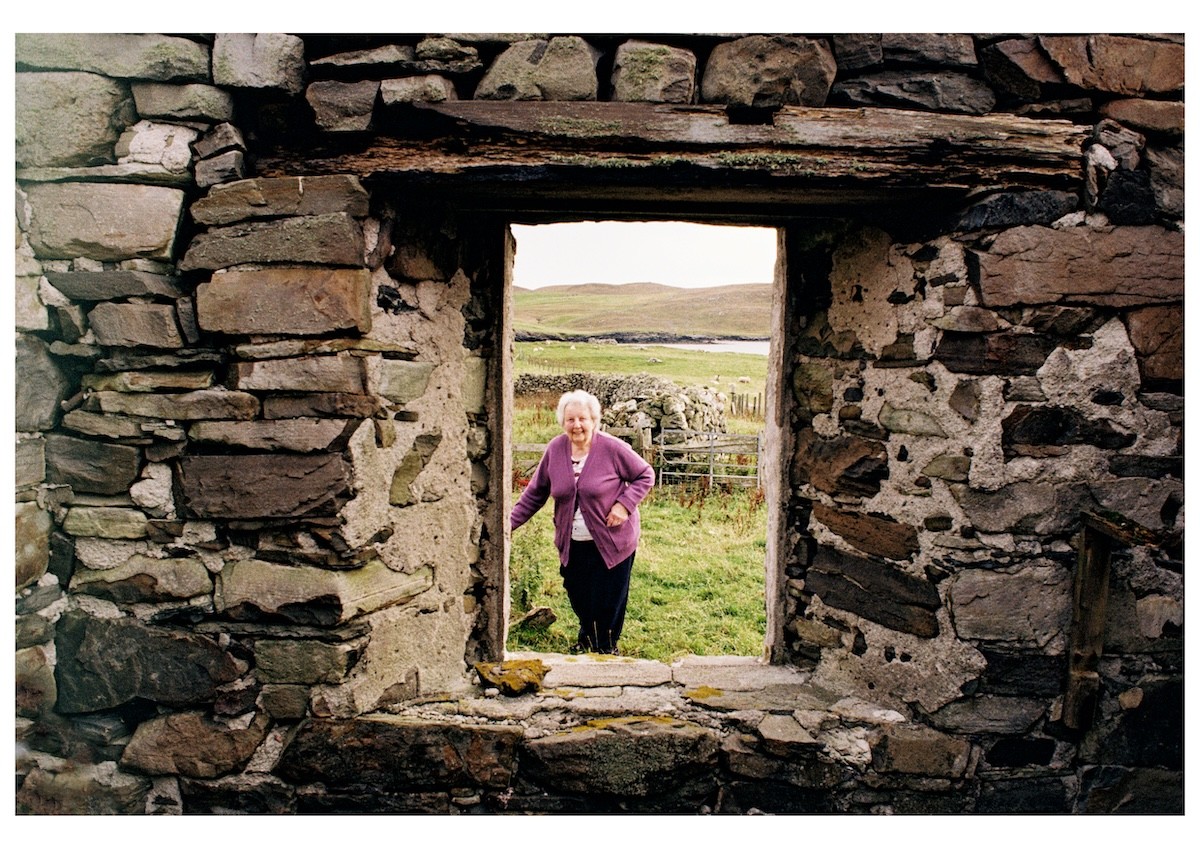
I met my Gran’s second cousin. When I called to ask where she lived, she said: Past the shop, up the hill, turn left, second road on your left. After a few wrong turns, we found it. She’s quick and funny and made me pancakes with butter and jam. We talked about her great uncles and aunts leaving, never expecting to see their family ever again.
She calls earwigs forky bums. Potatoes tatties.

She drove me down to show me the old croft my great-great-grandparents were born in, their well for water, ocean for food, and one humble room with a big fire to cook over and keep them warm. It makes sense. The self-sufficiency and isolation feel familiar. My body understands the landscape even if my mind doesn’t.
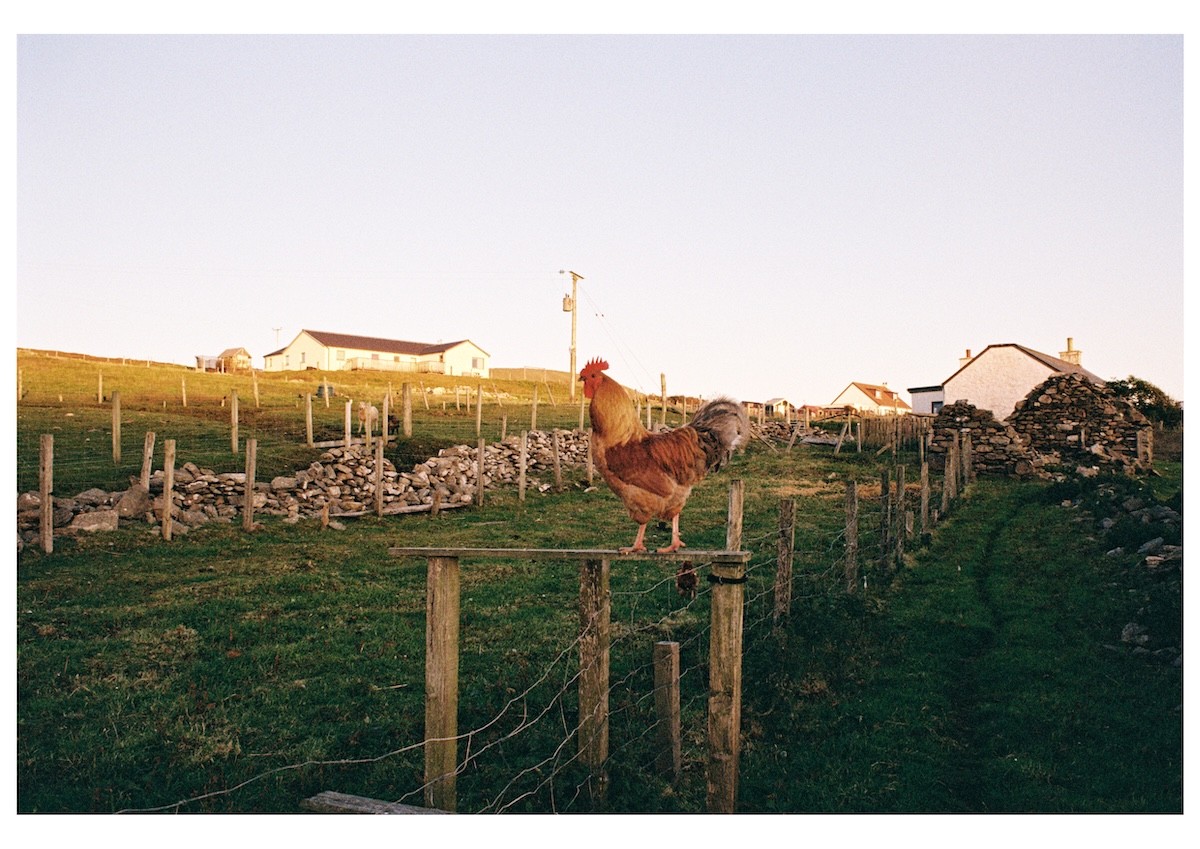
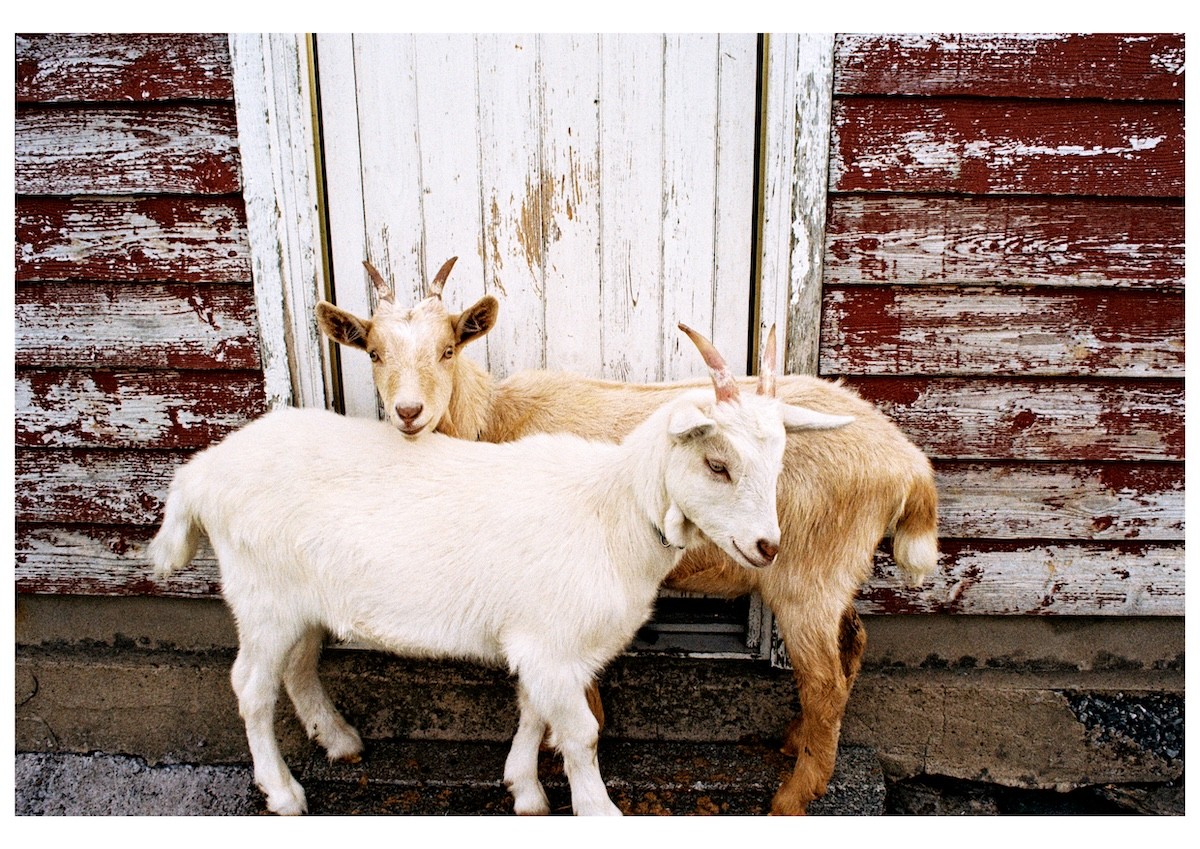
The morning routine goes:
Tea and cereal with peanut butter and goat’s milk
Feed eight dogs
Milk goats
Feed goats
Feed chickens
Feed eleven horses
Pick up all the poos
Have a cup of tea and a biscuit.
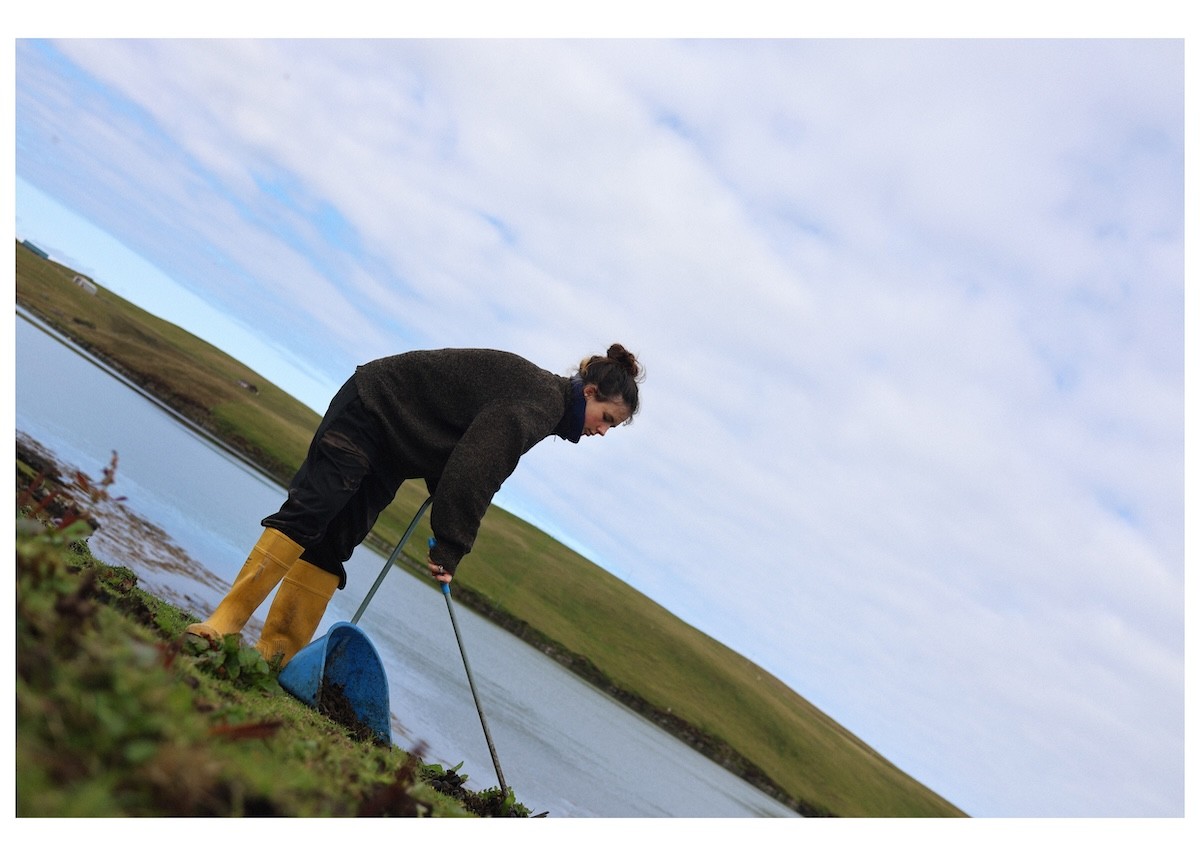
Dorothy, who runs this croft, is incredible. I have no idea how she does it by herself. I asked her how she maintains such a kind, welcoming environment with so many people coming through, and she said she believes not one person knows everything, and we are all there to work together to find solutions.

On my last night, we swam at sunset, five of us women and two dogs running into the ocean. The water was crystal clear, and the beach was empty. From running up the hills on horseback, watching the stars fall over the ocean, and swimming in the ice-cold ocean, this experience has been a reminder of the strength and resilience of women and the importance of being humbled by nature.



